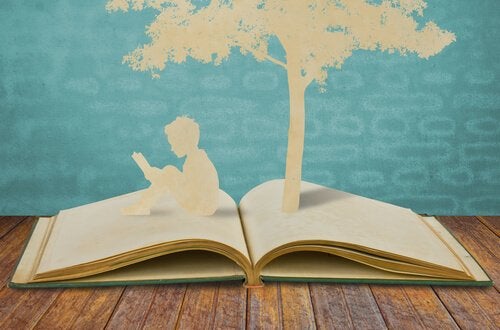Aristotle once said, “The roots of education are bitter, but the fruit is sweet. “Many things have happened since then in the world of the psychology of education, but you could say that his words are as current today as they were 2000 years ago.
Over time, the psychology of education has emerged as a mixture of pedagogy and psychology, a few years ago an interest arose to find the psychological foundations of educational practice, in this way psychological principles can be applied to education, achieving excellent results. .
- It cannot be said that the psychology of education existed centuries ago; however.
- Greek thinkers.
- Such as Aristotle or Plato.
- Laid the groundwork for cognitive vision to determine human behavior; in fact.
- Aristotle regarded education as a state duty to his Thus.
- Difference as science.
- As his teacher Plato did.
- And adds the importance of virtue and ethics.
Centuries later, Aquino Theory will return to these theories, considering that learning is a process of gradual acquisition of intellectual knowledge.
In the Renaissance the idea of teaching based on experience was born, so authors such as Luis Vives, considered the father of modern psychology, applied ideas such as motivation, learning and teaching rhythms.
Subsequently, authors such as Juan Huarte de San Juan began to realize, through their theories of differential psychology, that each person has different abilities, his studies of school orientation confirm the existence of people with varied temperaments and different skills.
That’s when metaphysics separates from psychology, it’s right now that a real path to psychopedagogy opens up.
There comes a historic moment when education continues as a cardinal point of reason and experience of other sources of knowledge; rationalism develops its logic from authors such as Descartes and his methodological requirement; authors such as Comenius argue that there are four fundamental educational characteristics: laws of nature, the cyclical order of teaching, the inductive method, and active and pragmatic teaching.
Then we come to Locke and Hume, who try to save the value of experience from logic and reason, for them every knowledge has its origin in experience, so education must be oriented towards the disciplines that make up the mind. as Rousseau have introduced a more naturalistic tendency, in this way they promoted the realization of the pure state of man with an education, which served as a guide and teacher naturally.
Thus we come to modern times, where authors like Herbart appear, who say that the teacher must know the pedagogical purpose to be a “good teacher”, so he defends educational action from a psychological point of view. way we came to Pestalozzi, considered the father of modern psychology. He brings the practice of naturalism, but points out that the student needs society to grow.
And we come to Dewey, who sees the active school as the need for a pedagogical renewal with three important aspects: the attitude towards the child, the student as the axis of educational activity and the importance of pedagogical content.
“Education is not preparation for life; Is education life itself?-John Dewey-
Finally, we reach the most current authors, who over the last century have changed the world of modern psychology, it all began in the late nineteenth and early twentieth centuries, with authors such as Galton, Hall, Binet, James and Cattell.
Later there are authors such as Thorndike, who define the problem of learning and its transfer, such as Judd, who works with psychometric tests, schools such as conductism, Gestalt and Watson’s psychoanalysis are consolidated, which argues that our behavior is influenced by specific elements that are outside the center of our consciousness.
Finally, with more contemporary authors, we find contributions from famous names such as Skinner and Becker, with their approaches to strengthening behaviors, cognitive currents in the studies of Piaget, Goodnow, Bruner, or humanists with Maslow, Rogers or Allport.
Thus, we conclude this rapid review of the history of the psychology of education, inviting the reader to delve into the subject. Here are the main names, starting points of exciting theories that try to explain “why we learn how we learn”.
“The only educated person is the one who has learned to learn and change. “-Carl Rogers-

